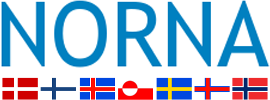Workshop on Proper Names and Morphosyntax
Date: Tue, 24 Mar 2015 18:45:03
From: Tanja Ackermann [propmorph@zedat.fu-berlin.de]
Subject: Workshop on Proper Names and Morphosyntax
Full Title: Workshop on Proper Names and Morphosyntax
Date: 05-Nov-2015 - 06-Nov-2015
Location: Berlin, Germany
Contact Person: Barbara Schlücker
Meeting Email: propmorph@zedat.fu-berlin.de Web Site: http://neon.niederlandistik.fu-berlin.de/propmorph/
Linguistic Field(s): Morphology; Syntax
Call Deadline: 30-Apr-2015
Meeting Description:
Invited Speakers:
Maria Koptjevskaja-Tamm (Stockholm)
Damaris Nübling (Mainz)
Workshop Description:
Research on proper names has thus far mainly been concerned with diachronic development, thereby focusing on etymological problems and the history of names. In linguistics and the philosophy of language there has also been abundant research on the semantics of proper names and the distinction between proper names and common nouns. In contrast, questions about the morphosyntactic properties of proper names have received comparatively little attention in the literature. Although there are a few aspects that have been discussed in some detail recently such as, for instance, the diachronic development of inflectional marking, in general many questions remain open or have not even been posed yet. One explanation for this is that proper names do not form a homogeneous class with respect to their grammatical status but, rather, there are quite a number of different simplex and complex morphological and syntactic constructions being subsumed under this category.
The workshop aims to contribute to filling this gap. More specifically, we wish to explore the morphosyntax of proper names from two perspectives: on the one hand, we want to discuss the morphosyntactic properties of proper names. On the other hand, we want to focus on complex expressions containing proper names. This includes constructions with prepositional phrases (e.g., by-phrases) or the genitive, just as deonymic word formation, compounding, conversion, and others. For both perspectives, the central question is in which way and to which extent proper names deviate from non-proprial expressions and whether it is legitimate - or even necessary - to posit a specific grammar of proper names.
To this end, we invite both language-specific and cross-linguistic contributions. The primary focus is on synchronic data but a diachronic perspective is also very welcome. Topics to be explored include, but are not restricted to, the following:
- What is the morphosyntactic status of (different kinds) of complex proper names? What are the implications for grammatical theory?
- Are there differences between different kinds of proper names with regard to their morphosyntactic properties?
- How does the morphosyntactic marking of proper names differ cross-linguistically?
- How does deonymic word formation differ from word formation with the same (or: homonymic) derivational affixes?
- Which patterns of onymic word formation can be observed, both language-specifically and cross-linguistically?
- Are there competing patterns of morphological and syntactic constructions with proper names?
- Are there specific patterns of onymic inflection or tendencies that can be observed cross-linguistically?
2nd Call for Papers:
We invite abstracts for talks of 30 minutes (+ 15 minutes discussion), dealing with either single-language or comparative topics. The primary focus is on synchronic data, but a diachronic perspective is also very welcome.
Please send an anonymous abstract of no more than 500 words, excluding references, to propmorph@zedat.fu-berlin.de.
Notification of acceptance: (Beginning of) July 2015
